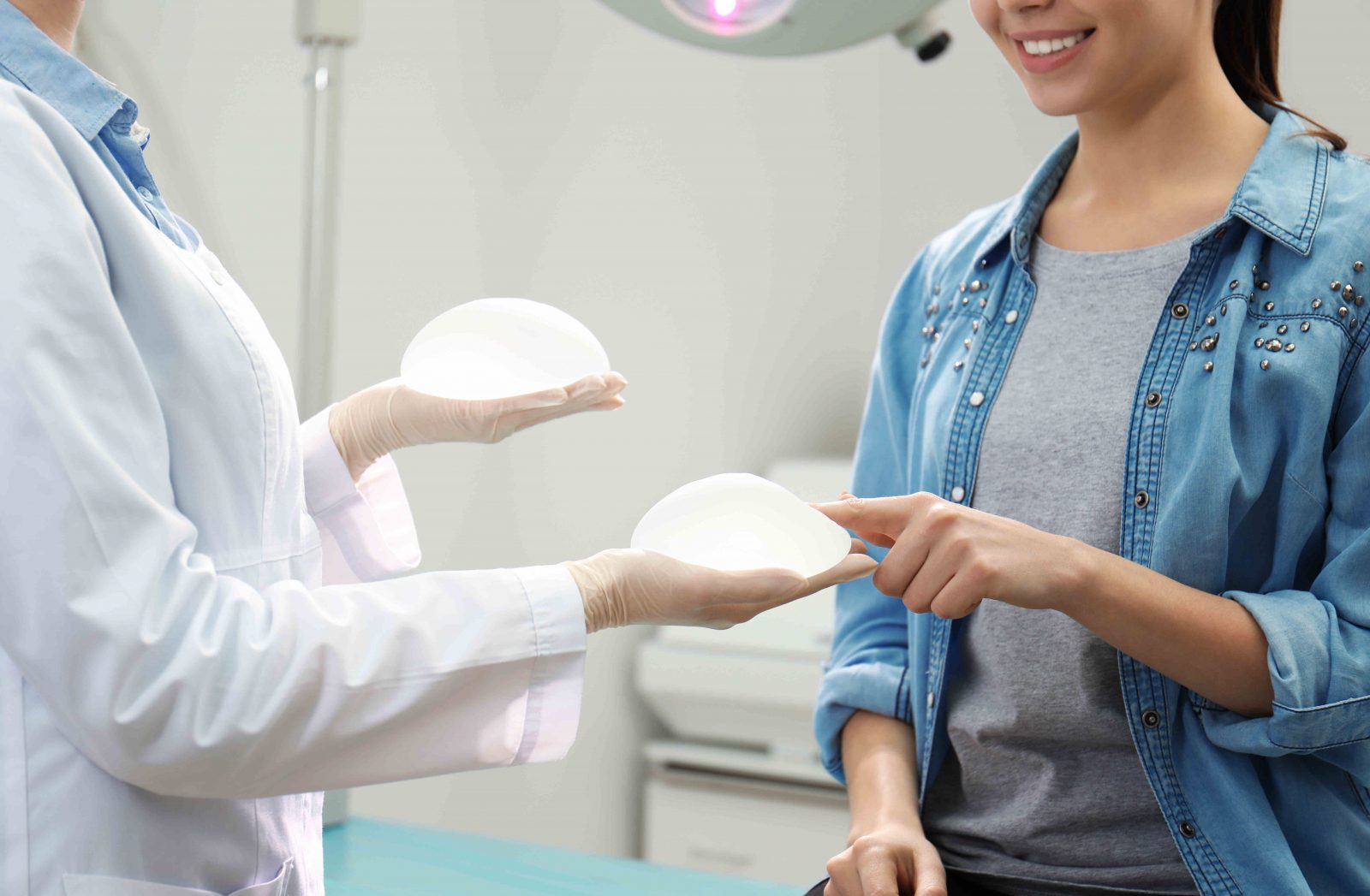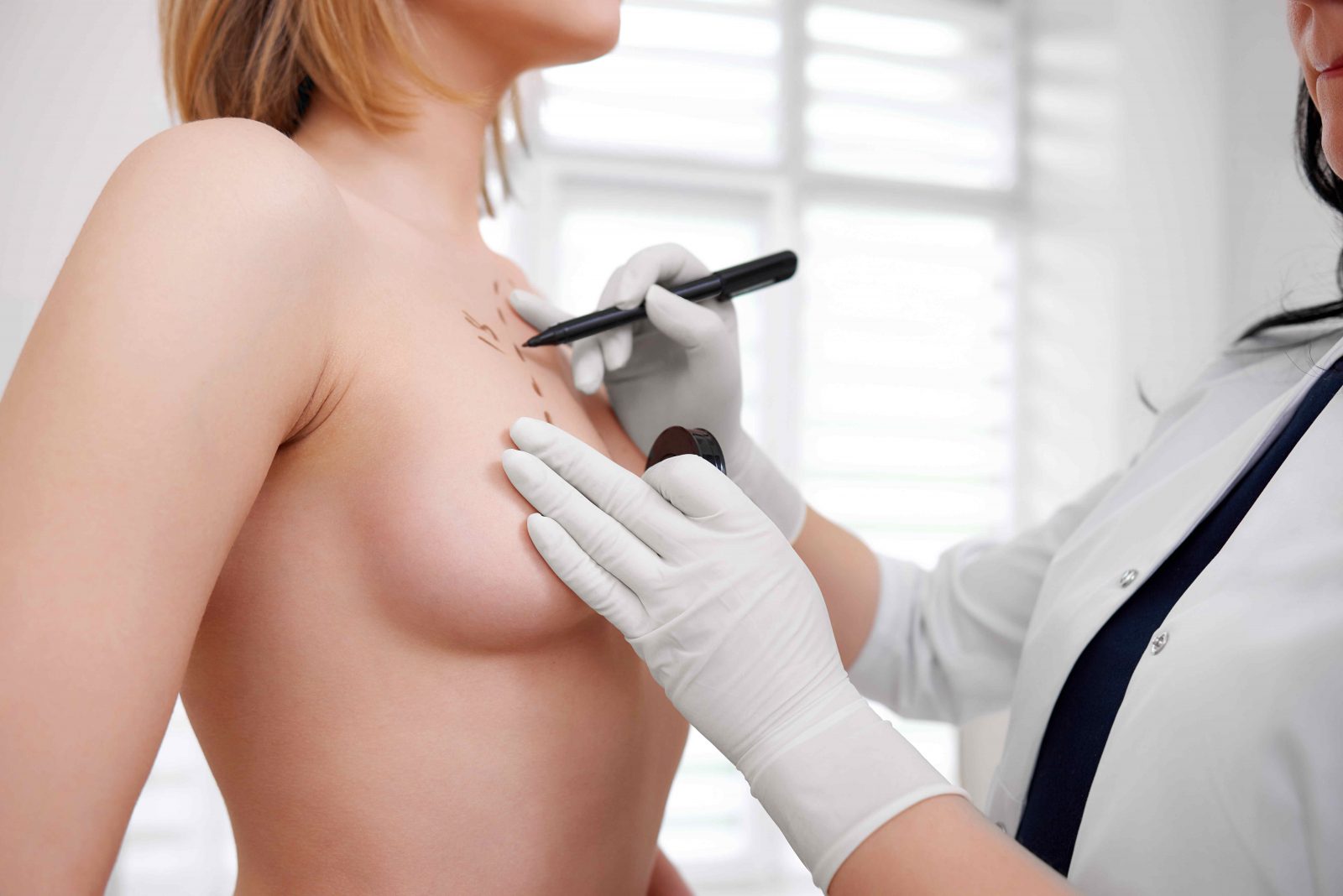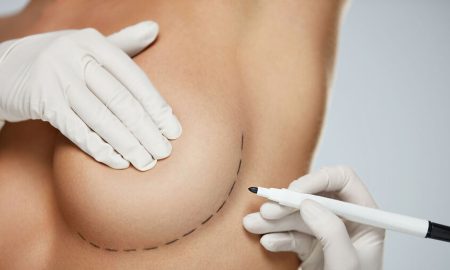Gabrielle B. Davis, MD is a practicing Plastic Surgeon in Beverly Hills. Dr. Davis redefines aesthetic medicine by implementing her unique research background in tissue regeneration into her medical practice to reduce the effects of aging on the body. Dr. Davis’s mission is to create natural-appearing results implementing scientific principles of aging with the sound surgical technique. Her philosophy is that while aging is a normal process of life and scientifically we can not stop the process, we can definitely redefine the concept of “aging gracefully." Haute Beauty expert Dr. Gabrielle Davis talks about the things to consider prior to breast augmentation surgery.

While breast augmentation is one of the most common plastic surgery procedures performed worldwide, some women still have concerns about the safety of breast implants. Due to the recent controversy in the media highlighting the safety of implants, it is important that all patients are properly informed prior to deciding if this surgery is right for them.
What are the options for breast augmentation?
Breast augmentation can be performed with breast implants or fat transfer. The 2 types of breast implants available in the United States are silicone or saline. Fat transfer involves liposuction to collect fat from other areas in the body to transfer to the breasts. Some patients prefer fat transfer over the use of implants as it utilizes their own tissue and avoids the concerns associated with breast implants.
Who is a candidate for fat transfer for breast augmentation?
A good candidate for breast augmentation with fat transfer is someone that has enough available fat to create their desired breast size. A certain percentage of transferred fat is reabsorbed by the body, so it is better to “over-enhance” initially to account for later losses. Some people may require multiple sessions of fat grafting over a period of time before they reach their desired size.
Who is a candidate for breast augmentation with implants?
Most patients are candidates for breast augmentation with breast implants, particularly if they do not have enough fat for fat transfer. One must consider if they are more comfortable with silicone versus saline breast implants. Most physicians prefer silicone implants as they can create a more natural shape and feel of the breasts. However, breast implants are not lifetime devices and usually will require replacement at some point in time.
How can a breast implant be placed?
A breast implant can be placed from an incision in the inferior fold of the breast, around the nipple-areolar complex or in the axillary area. Most physicians prefer an incision in the inferior fold of the breast and it allows for better visualization and has lower rates of complications.
Where can a breast implant be placed?
A breast implant can be placed under the pectoralis major muscle or above the pectoralis major muscle. Placing the implant under the muscle can offer a layer of support and protection of the implant and results in less visible rippling. However, placement under the muscle can also create animation deformity. Animation deformity is when the pectoralis muscle contracts usually with upper body exercises, the outline of the implant becomes visible.

What size implants are right for me?
Factors to consider when choosing the size of a breast implant, are your underlying body habitus, the diameter of your chest wall, and the amount of breast tissue compliance (or the amount your tissue will stretch to accommodate the breast implant). Larger implants can lead to faster drooping of the breast tissue over time secondary to the weight of the breast implants.
What is capsular contracture?
Capsular contracture is when scar tissue forms around the implant and contracts which can distort the shape of the breasts and cause pain. The treatment for capsular contracture is removing the scar tissue and replacing the implant.
When should I consider a breast lift with breast implants?
If your nipples have dropped to the inferior portion of your breasts, you will likely need a breast lift with breast augmentation surgery. The nipple typically drops with age, fluctuations in weight, and after pregnancy and/or breastfeeding.
Can I breastfeed after having breast implants?
Most women are able to breastfeed normally with breast implants. However, if you are planning to become pregnant and/or breastfeed in the near future, then I would recommend waiting until after your pregnancy and/or breastfeeding, as your breasts may change significantly after these events.
What is Anaplastic Large Cell Lymphoma (ALCL)?
ALCL is a VERY RARE lymphoma that has been associated with certain types of breast implants usually with a textured surface. The exact cause of this lymphoma is not clearly known at this point in time, and the breast implants that have been associated with a higher risk have been removed from the market.
What is Breast Implant Illness (BII)?
This is a term used to define women that present with various systemic symptoms that they believe began after receiving breast implants. It has been reported by women with both saline and silicone breast implants. BII is not a medical diagnosis and to date there have not been any proven studies to demonstrate causative factors. Some women report improvement of symptoms after removal of their implants, however, there are no specific studies that demonstrate that symptoms will or will not improve after implant removal. There are ongoing studies however looking into this condition.
The majority of women that have breast implants are overall happy with their results and will never have any problems with their implants. However, it is important to be well informed prior to deciding on any surgical procedure. It is also important that you are completely comfortable with your surgeon, that they are listening to your concerns, answering all of your questions thoroughly, being realistic with outcomes and expectations, and most importantly that you trust that they are providing you with the best care!
For more information, visit Dr. Gabrielle Davis's social media:
























